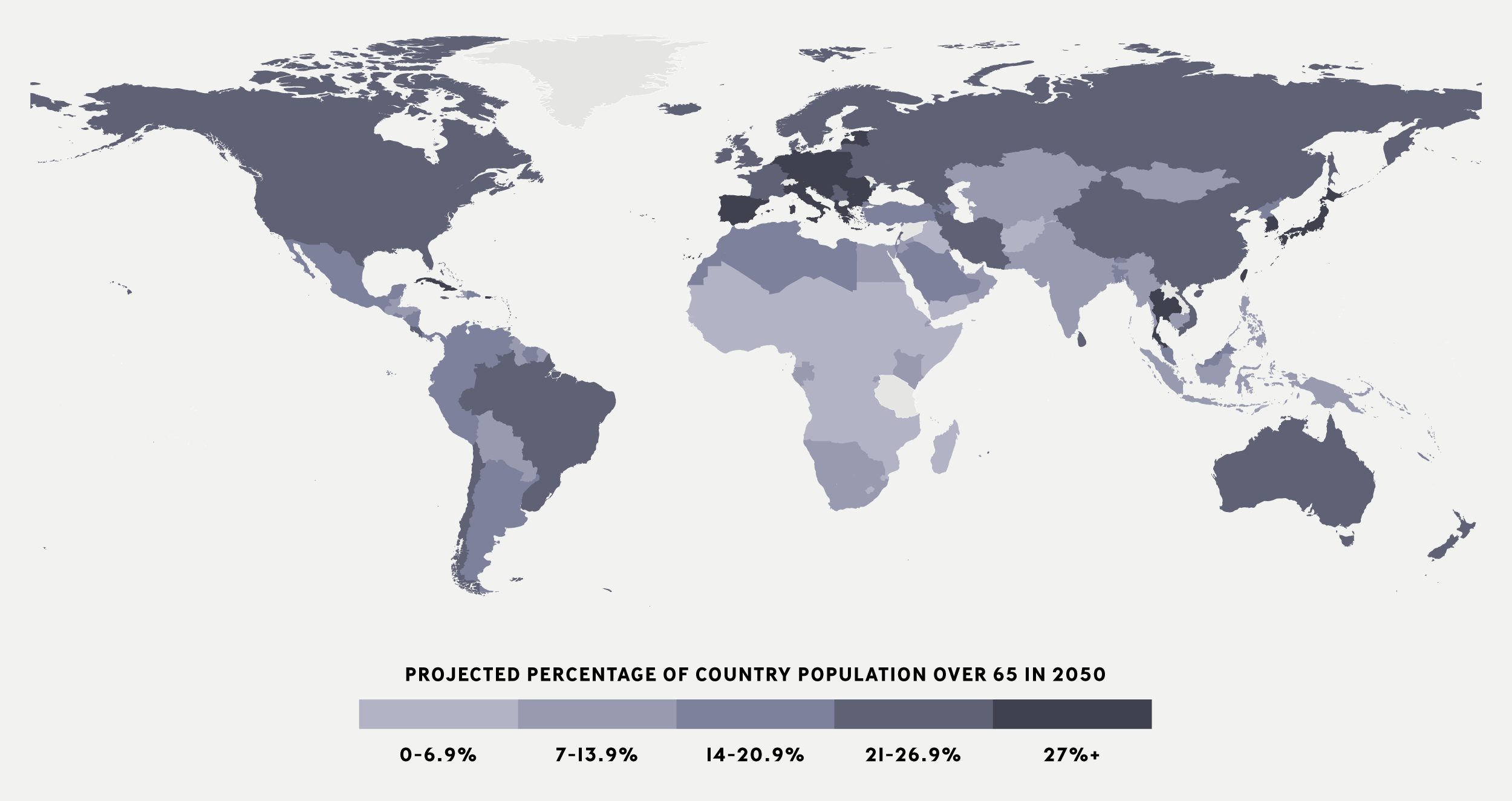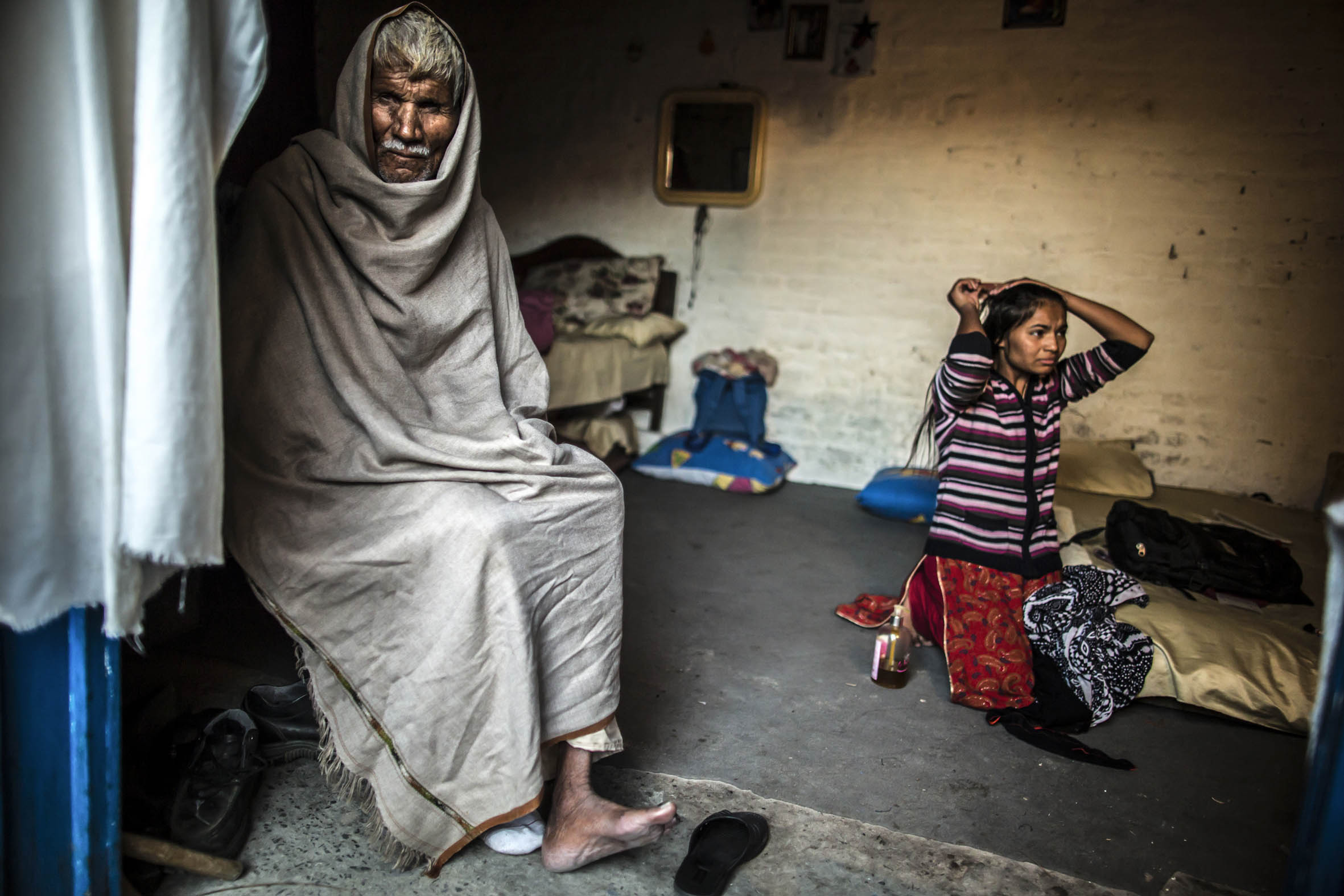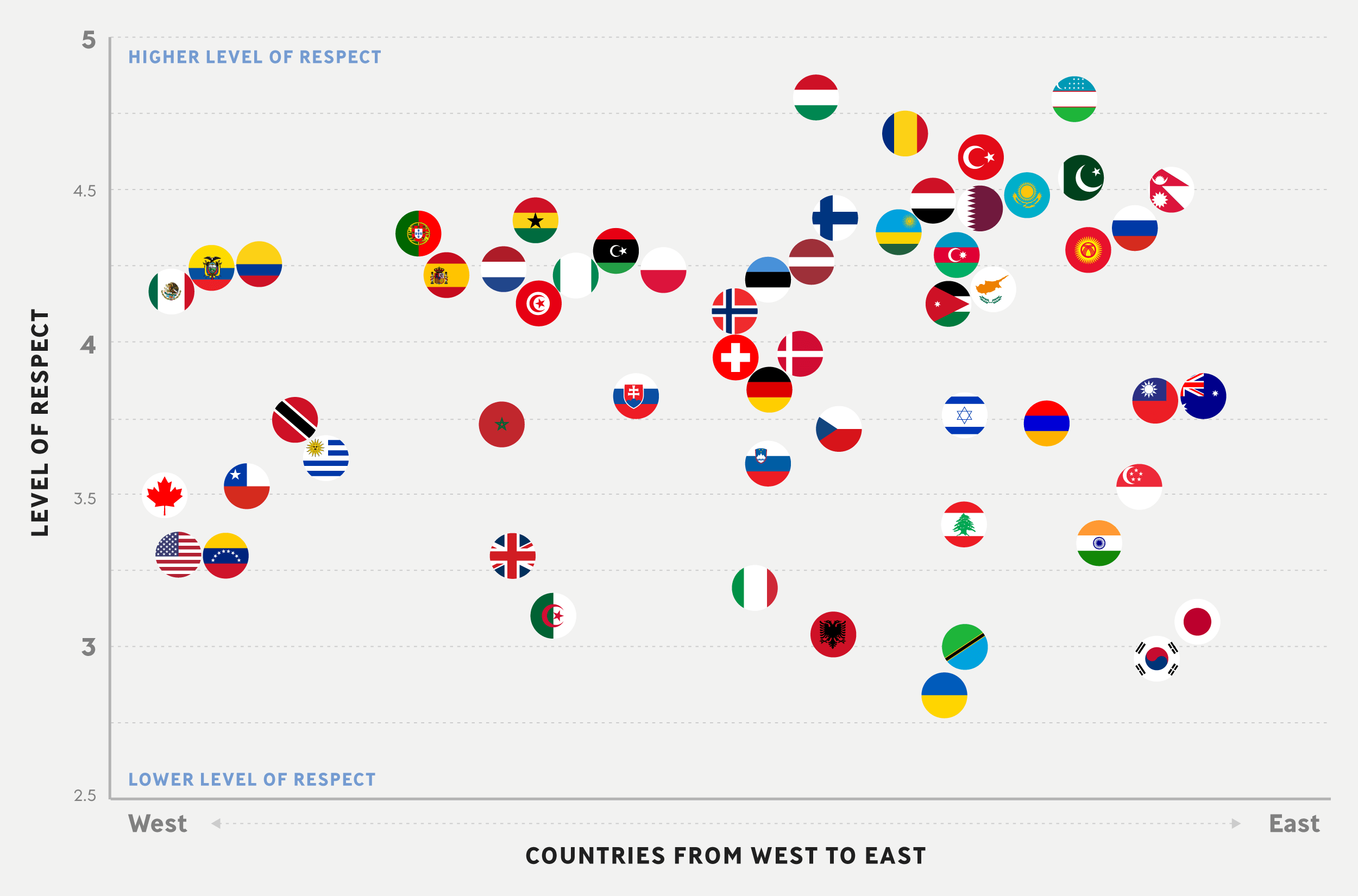Values: Older people exercise in Tokyo
At 85, Claude Copin, a retired French welder, may have discovered the secret to living a long, healthy life. She stays active by playing pétanque with friends in a Paris park. And she has made friends with her teammates’ children, many of whom are teenagers. They take her to parties and movies, sometimes forgetting that she might need a rest before they do.
“I make my life beautiful,” says Copin. “I am still healthy because I have activities and I meet people.”
READ MORE: Old, alone and no place to call home
Copin is right. A growing body of research and global data collected and analysed by Orb Media shows a strong connection between how we view old age and how well we age. Individuals with a positive attitude towards old age are likely to live longer and in better health than those with a negative attitude. Older people in countries with low levels of respect for the elderly are at risk of worse mental and physical health and higher levels of poverty.
Healthy aging is increasingly important: people in countries everywhere outside of Africa are rapidly growing older. If population trends continue, by 2050 nearly one out of five people in the world will be over 65 and nearly half a billion will be older than 80. Smaller populations of young people will have to care for large older populations with increasingly expensive healthcare needs.

Surprisingly, in a world brimming with older people, negative views about old age are common. A World Health Organisation analysis found that 60% of people surveyed in 57 countries have negative views about old age. Older people are often viewed as less competent and less able than younger people. They are considered a burden on society and their families, rather than being recognised for their valuable knowledge, wisdom and experience.
Orb Media compiled data from more than 150 000 people in 101 countries to learn about their levels of respect for older people. Pakistan was among the countries that scored the highest.
There it is a long-standing tradition, says Faiza Mushtaq, an assistant professor of sociology at the Institute of Business Administration in Karachi. But, as more people move to cities, traditional family structures are being disrupted, making it harder to care for elders. Without a government safety net, many fall into severe poverty, she says.
Nonetheless, there are tangible benefits to the way elders are viewed, says Mushtaq. “This attitude towards aging is a much healthier embrace of the aging process rather than having all of your notions of wellbeing and attractiveness and self-worth being tied so closely to youth.”
Japan, with the world’s longest lifespans and low birth rates, is at the leading edge of this global demographic shift. There Orb found low levels of respect for older people. Dr Kozo Ishitobi, an 82-year-old nursing home physician, says older people were seen as a burden. But “Japanese people are starting to realise that elderly people need support. We all go through it, so we should support each other.”
It turns out that one’s attitude to aging has broad implications. Becca Levy, a professor of epidemiology at the Yale School of Public Health in the United States, has been fascinated by the power of age stereotypes for decades. She started her work in the 1990s with a hunch. If older people are respected in society, perhaps that improves their self-image. “That may in turn actually influence their physiology and that may influence their health,” she says.
Over the past two-and-a-half decades, Levy, the leader in the field, and other researchers have found just that — those with positive views about old age live longer and age better.
 [In Pakistan, elders are respected but many are falling into poverty because family structures are shifting and the state gives no support. (Zohra Bensemra/Reuters)]
[In Pakistan, elders are respected but many are falling into poverty because family structures are shifting and the state gives no support. (Zohra Bensemra/Reuters)]
They are less likely to be depressed or anxious, and they show increased wellbeing and recover more quickly from disability. They also are less likely to develop dementia or Alzheimer’s disease.
In one study, Levy found that Americans with positive views on aging, who were tracked over decades, lived 7.5 years longer than those with negative views. Studies in Germany and Australia have found similar results. “Some of the magnitudes of the findings have been surprising,” Levy says.
Orb’s research and analysis found that these effects can also be seen across cultures. Older people in countries with high levels of respect for them report better mental and physical wellbeing compared with other groups in their countries, according to data from the Organisation for Economic Co-operation and Development, the United Nations and others. Those countries also report lower rates of poverty among people over 50 compared with younger people in each country.
It seems too simple. How can holding a better attitude about old age help someone to live longer?
Levy found that people with negative age stereotypes have higher levels of stress, and stress has been correlated with a range of health problems. Those who expect a better life in old age are also more likely to exercise, eat well and visit the doctor, says Levy.
That has been the case for 57-year-old Marta Nazaré Balbine Prates, who moved her family into her parents’ home in Sao Paulo, Brazil, a decade ago. She had to quit her job as a nutritionist at a hospital to care for them (her father died at the beginning of the year). It has been hard financially and emotionally. But, she says, the experience has made her think about the kind of life she wants when she is older.
“I try to watch what I eat. I work out as much as possible so I can reach old age in good physical condition.”
READ MORE: What it feels like to be old
We should be grateful that we are even concerned about growing old, says Marília Viana Berzins. She has worked with older people in Brazil for 20 years and founded on advocacy group, Observatory of Human Longevity and Aging. “Old age is actually an achievement. It’s humanity’s biggest achievement of the last century.”
But, Berzins says, in Brazil old age has become associated with incapacity. “When we change this mind-set and old age is seen like just a stage of life, we’ll move forward and the elderly will be treated with more respect.”
Shifting stereotypes is not simple. People develop their views on aging when they are toddlers, says Corinna Loeckenhoff, an associate professor of gerontology in medicine at Weill Cornell Medical College, who has studied age stereotypes across cultures. But they also change based on experience. Unfortunately, negative beliefs are often built on inaccurate impressions.
As people grow older, their health usually remains stable until about five years before they die, says Loeckenhoff. Only then will most people experience the mental and physical decline most people associated with old age. “People keep mixing up aging and dying,” she says.

Some research shows that increasing meaningful contact between younger and older people can break down negative stereotypes. For the past five years the Résidence des Orchidées, a nursing home in Tourcoing, France, has tried to do just that.
Every week, the home brings children from a neighbouring daycare centre to visit the residents.
Pierre Vieren, a 91-year-old retired business owner, loves seeing the children. “When I go to my balcony, the children say, ‘Pierre, he is here’. They all wave at me to say hello. That is my little ray of sunshine in the morning.”
The nursing home’s director, Dorothée Poignant, says the experience normalises old age for the children.
“It recreates a family spirit with joy, children laughing, older people laughing. We don’t only have elderly, we have children, elderly, disabled people. It’s inclusive.”
Everyone can gain from improving ideas about old age, says Loeckenhoff. “The single most important thing to realise [is] … you will be the victim of your own stereotype, or the beneficiary, as you get older.”